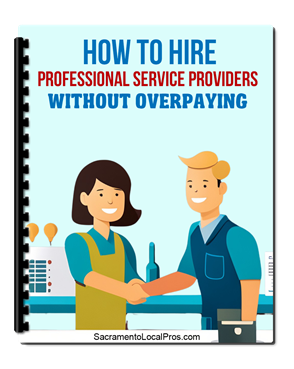Finding the perfect home can feel like searching for a needle in a haystack.
However, with the right approach and helpful tips in hand, the house hunting process can be less stressful and more rewarding.
This guide is crafted to provide you with 10 insightful tips that will navigate you toward your dream home.
Whether you are a first-time buyer or an experienced homeowner looking to make a move, these tips will equip you with the knowledge to make informed decisions and find a home that fits your needs and aspirations.
Let's embark on this exciting journey together.
1)) Determine Your Budget
Before you start looking at homes, it's important to determine how much you can afford to spend.
This includes considering what you can comfortably afford in terms of monthly mortgage payments, but also factoring in other costs such as property taxes, insurance, and maintenance expenses.
Also, get pre-approved for a mortgage not only gives you an idea of your budget but also makes you a more attractive buyer in the eyes of sellers.
It shows that you're serious and financially able to make an offer.
Tips to Help You Determine Your Budget:
- Understand Your Monthly Income and Expenses: Start by taking a close look at your monthly income and your current expenses. Make sure you understand where your money is going each month and how much you have left over.
- Create a Mock Homeownership Budget: Make a mockup budget that includes all potential homeownership costs like mortgage payments, property taxes, insurance, and maintenance. This will give you a clearer understanding of what you can afford.
- Consult with a Financial Advisor: A financial advisor can help you understand your financial picture, guide you in setting a realistic budget, and provide advice on the best way to finance your home purchase.
Determining your budget is a crucial first step in the house hunting process.
By understanding your monthly income and expenses, creating a mock homeownership budget, and consulting with a financial advisor, you can establish a realistic budget that will guide your home search.
This will help you avoid financial stress in the future and bring you one step closer to finding your perfect home.
It's not just about how much you can borrow, but how much you can comfortably afford.
2)) Research Neighborhoods
Once you have a budget in mind, it's time to research different neighborhoods.
Consider factors such as location, schools, safety, and access to amenities like shopping and entertainment.
Tips to Help You Research Neighborhoods:
- Visit at Different Times of Day: Neighborhoods can change drastically from day to night. Make sure to visit at different times of the day to get a full picture of what living there might be like.
- Look into School Districts: If you have or are planning on having children, looking into school districts is crucial. Research the quality of the schools in the neighborhoods you are considering.
- Check Crime Rates: Safety is a major concern when choosing a neighborhood. Make sure to look into crime rates and speak with local law enforcement or residents to get a sense of the safety level in the area.
Researching neighborhoods is a critical step in finding your ideal home.
By visiting at different times of the day, investigating school districts, and checking crime rates, you can get a comprehensive understanding of the neighborhood's character and suitability for your needs.
This research will not only help you to make an informed decision but will also ensure that the home you choose is in a community where you feel comfortable and secure.
3)) Make A List Of Must-Haves
Before you start looking at homes, make a list of features that are important to you.
This could include things like the number of bedrooms, the size of the yard, or the presence of a garage.
Having a list will help you stay focused and avoid getting distracted by properties that don't meet your needs.
Tips to Help You Make a List of Must-Haves:
- Prioritize Your Needs and Wants: Distinguish between what you need in your new home and what you want. Needs are non-negotiables, while wants are nice to have. This will help you to focus on what's truly essential.
- Consider Your Future Plans: Think about your future and how your needs might change. If you plan on having a family or if you're nearing retirement, these factors could significantly influence your list of must-haves.
- Be Flexible: While it's important to know what you want, be flexible in your list of must-haves. The perfect home might not have every single feature on your list, but it could still be the right home for you.
Creating a list of must-haves is instrumental in guiding your home search.
By prioritizing your needs and wants, considering your future plans, and maintaining a level of flexibility, you can effectively narrow down your options to homes that truly align with your personal and lifestyle requirements.
The essence of this list is not to find a home with every single feature you desire, but one that fulfills the majority of your needs and feels right for you.
4)) Work With A Real Estate Agent
A good real estate agent can be a valuable resource throughout the home buying process.
They can help you find homes that fit your criteria, negotiate with sellers, and guide you through the closing process.
Tips to Help You Work With A Real Estate Agent:
- Choose the Right Agent: Research potential agents before settling on one. Look at their track record, client reviews, and their knowledge of the area you're interested in. It's important that they understand your needs and that you feel comfortable working with them.
- Communicate Clearly: Be clear and upfront about your budget, must-haves, and deal-breakers to help your agent find the best homes for you. Regular communication is key to ensuring that you and your agent are on the same page.
- Ask Questions: Don't hesitate to ask questions about any part of the process that you don't understand. A good agent will be more than willing to explain things to you and ensure that you are fully informed throughout your home buying journey.
Working with a real estate agent can greatly simplify and streamline your home buying process.
By choosing the right agent, maintaining clear and regular communication, and not hesitating to ask questions, you can ensure a productive partnership.
A good real estate agent is not just there to facilitate a transaction, but to guide you on your journey to finding your perfect home.
5)) Attend Open Houses
Attending open houses can give you a feel for different neighborhoods, home styles, and property values.
It's also a great opportunity to ask questions and gather information about homes you may be interested in.
Tips to Help You Attend Open Houses
- Prepare Questions in Advance: Before attending an open house, make a list of questions you would like to ask about the property, the neighborhood, or the seller's reason for moving. This will ensure you gather all the necessary information to make an informed decision.
- Be Observant: Pay close attention to the property's condition, the upgrades or renovations, and any potential problems. It's also beneficial to observe the neighborhood and its proximity to amenities like schools, parks, and shops.
- Take Notes and Photos: Remembering the details of every property can be challenging, especially if you're visiting several open houses. Taking notes and photos will help you remember each property and compare them later on.
Attending open houses is a valuable step in your home buying journey.
It offers a tangible and experiential understanding of potential homes and neighborhoods.
By preparing pertinent questions, being keenly observant, and taking detailed notes and photos, you can gather critical information that will aid in your decision-making process.
Every open house is a learning experience that brings you one step closer to finding your ideal home.
6)) Consider The Condition Of The Home
When viewing properties, take note of their condition. Are there any obvious repairs that need to be made?
Is the home move-in ready, or will you need to make renovations?
These factors will impact the overall cost of the home and should be factored into your decision-making process.
Tips to Help You Consider the Condition of the Home:
- Do a Thorough Walkthrough: Take your time to walk through the entire property, checking for any signs of damage or wear and tear. Look at the walls, floors, ceilings, and any built-in appliances.
- Consider a Professional Inspection: Hiring a professional home inspector can provide you with a detailed report of the home's condition, including any potential issues that might not be visible to the naked eye.
- Estimate Potential Repair Costs: If the home requires repairs or renovations, try to estimate how much these might cost. This can help you negotiate a lower price or decide if the home is worth the additional investment.
The condition of the home plays a critical role in your purchasing decision.
By conducting a thorough walkthrough, considering a professional inspection, and estimating potential repair costs, you can make an informed decision on whether the house is a worthwhile investment.
It's not just about finding a beautiful home; it's about finding a home that's in good condition and suits your lifestyle and budget.
7)) Pay Attention To The Layout
The layout of a home can be just as important as the square footage. Consider how spaces flow together and whether the layout will work for your lifestyle.
Tips to Help You Pay Attention to the Layout:
- Consider Your Lifestyle: Think about how you would use each space in the house. If you love to cook, you might want a large, well-equipped kitchen. If you work from home, you might need a quiet, well-lit office space.
- Think About the Future: If you plan on expanding your family or having elderly parents move in with you, consider if the current layout can accommodate these changes.
- Check the Flow of the Home: Consider how spaces connect and flow into one another. Good flow can enhance daily life by making common tasks more efficient and enjoyable.
The layout of a home plays an integral part in your overall living experience.
It’s essential to consider your lifestyle, future plans, and the flow of the house before making a final decision.
A well-thought-out layout not only adds to the aesthetics of your home but also caters to the practical needs of daily life.
The right layout can transform a house into a home that is both functional and comfortable for you and your loved ones.
8)) Think Long-Term
When purchasing a home, it's important to think about your long-term plans. Are you planning to stay in the home for many years, or is it a starter home?
Will your needs change in the future, such as if your family grows or you retire?
Tips to Help You Think Long-Term:
- Evaluate Your Future Plans: Consider your life trajectory for the next 5-10 years. This might involve job security, plans for a family, or even retirement. Your home should be able to accommodate these potential changes.
- Consider the Resale Value: Even if you plan to stay for many years, it's wise to consider the potential resale value of the property. Look at the home's location, the local property market, and trends in home values in the area.
- Think About Ongoing Costs: Owning a home isn't just about the purchase price. It includes ongoing costs such as maintenance, property taxes, and insurance. Make sure to factor these into your long-term financial planning.
Long-term thinking is crucial when purchasing a home. It's not just about the present, but also about how the house will cater to your needs in the coming years.
Evaluating future plans, considering the potential resale value, and thinking about ongoing costs will guide you to make an investment that can support and enhance your future lifestyle.
Buying a home is a significant milestone, and its impact reverberates through your life's various stages.
Thus, a long-term vision is paramount in this crucial decision.
9)) Get A Home Inspection
Before making an offer on a home, be sure to get a home inspection. This will help identify any potential issues with the property and give you peace of mind that you're making an informed decision.
Tips to Help You Get a Home Inspection:
- Hire a Reputable Inspector: Research and hire a professional home inspector with positive reviews and a solid reputation. Their expertise can provide a thorough evaluation of the property and highlight any potential issues.
- Attend the Inspection: If possible, attend the home inspection. This will allow you to ask questions and get a firsthand understanding of any issues that the inspector uncovers.
- Review the Inspection Report: Carefully review the inspection report provided by the inspector. It covers various aspects of the house, such as the electrical system, plumbing, roofing, and heating and cooling systems. Understand its contents fully before making a final decision.
Securing a home inspection is a crucial step in the home buying process.
It offers a deeper insight into the property's condition and potential issues, helping you make an informed decision.
Hiring a reputable inspector, attending the inspection, and thoroughly reviewing the report can significantly contribute to ensuring you're investing in a home that is safe and structurally sound.
A home is not just a purchase, it's an investment in your future, making the importance of a comprehensive home inspection indisputable.
10)) Don't Rush The Process
It's important to take your time and not rush the process. Finding the perfect home can take time, and it's important to be patient and not settle for a property that doesn't meet your needs.
Tips to Help You Not Rush the Process:
- Do Your Research: Understand what you want in a home, and don’t rush into buying a house that doesn’t meet your criteria. Research on the location, the size and layout, and also on your budget.
- Be Patient: The process of finding the perfect home can be time-consuming. Don't allow external pressures to rush your decision. This is a significant investment that requires careful thought and consideration.
- Consult Experts: Real estate agents, financial advisors, and legal experts can provide valuable insights during your home buying journey. Don't hesitate to consult them to ensure that you're making informed decisions.
When buying a home, it's crucial to take your time and not rush the process.
It is a journey that requires careful research, patience, and consultation with experts.
By doing so, you ensure that your investment is sound and suits your future needs and lifestyle.
The perfect home is worth the wait and diligent search.
Buying a house is not just an investment in property, but an investment in your future, and therefore, it deserves your utmost time and consideration.
Conclusion
Buying a home is a significant decision that requires careful planning, thoughtful consideration, and informed decision-making.
It's essential to think long-term, get a thorough home inspection, and take your time throughout the process.
Remember, this is a journey that should be navigated with patience and understanding, keeping in mind your future needs and lifestyle.
This guide serves as a roadmap, providing tips and insights that can help you navigate this journey with confidence.
Always remember, buying a home isn't just a financial investment, it's an investment in your future.
Make it count!
Related Articles and Guides
- How To Save Money For A House
- 10 FAQs About How To Save For A House
- Top 10 Questions Everyone Should Ask Before Buying A Home
- 10 Tips For Negotiating A House Purchase
- 10 Tips For Buying A House To Get The Best Deal
- 10 Hacks For Buying A House Revealed
Are You Looking For The Best Real Estate Companies In Sacramento Ca? Click Here To Get In Touch With Top Real Estate Agents Today!
Download Our Free E-book!








